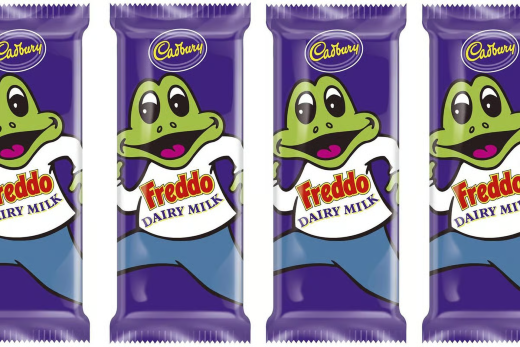Harry Melbourne’s creation was never meant to start an economic argument. When the 14-year-old Australian chocolate apprentice persuaded his boss in 1930 to swap a planned chocolate mouse for a frog, his pitch was simple: kids feared mice, but they chased tadpoles.
The penny-priced Freddo — named after his friend Fred — became a pocket-money staple. It arrived briefly in the UK in 1973, then re-emerged in the 1990s as a 10p treat, a sweet-sized symbol of childhood spending power.
Now it’s a symbol of something else entirely.
‘He’d Be Disgusted’
Leonie Wadin, Melbourne’s daughter, no longer buys Freddos. “Dad was disgusted with how small it is now and how much they charge for it,” she said from her home in Melbourne. “He’d roll over in his grave if he could see it now.”
In corner shops and convenience stores, a single Freddo sells for 30 to 35 pence. Some tourist kiosks and transport hubs have been spotted charging £1. For a generation of Britons, that rise is more than a price point — it’s a loss of innocence.
Freddo price increase and the public backlash
Economists note that inflation-adjusted, a Freddo is not vastly more expensive than it was 30 years ago. Sky News calculated it now takes up a smaller slice of the minimum wage than in the 1990s. But in the court of public opinion, the data loses to gut feeling.
That feeling has a name: shrinkflation. Chocolate bars are smaller, packets lighter, prices higher. Cocoa is trading near record highs, sugar has surged, and manufacturers face freight and energy bills far above historic norms.
Mondelez: It’s the Costs, Not the Frog
Mondelez International, Cadbury’s parent, says it doesn’t set shop prices but admits it has had to nudge up list prices and adjust pack sizes. “Manufacturing and supply chain costs have increased significantly over the past 50 years,” the company said, adding it has “absorbed these increased costs wherever possible.”
A Legacy Beyond the Wrappers
For Wadin, there’s more at stake than a price chart. Her grandchildren still buy the frog their great-grandfather created. “Carry on through every heritage — that’s what I want. Freddo is never going to die.”
That may be true. But in Britain, the small chocolate frog now doubles as an unofficial economic indicator. And for many, seeing it crawl from penny change to the pound coin has been the bitterest taste of all.



